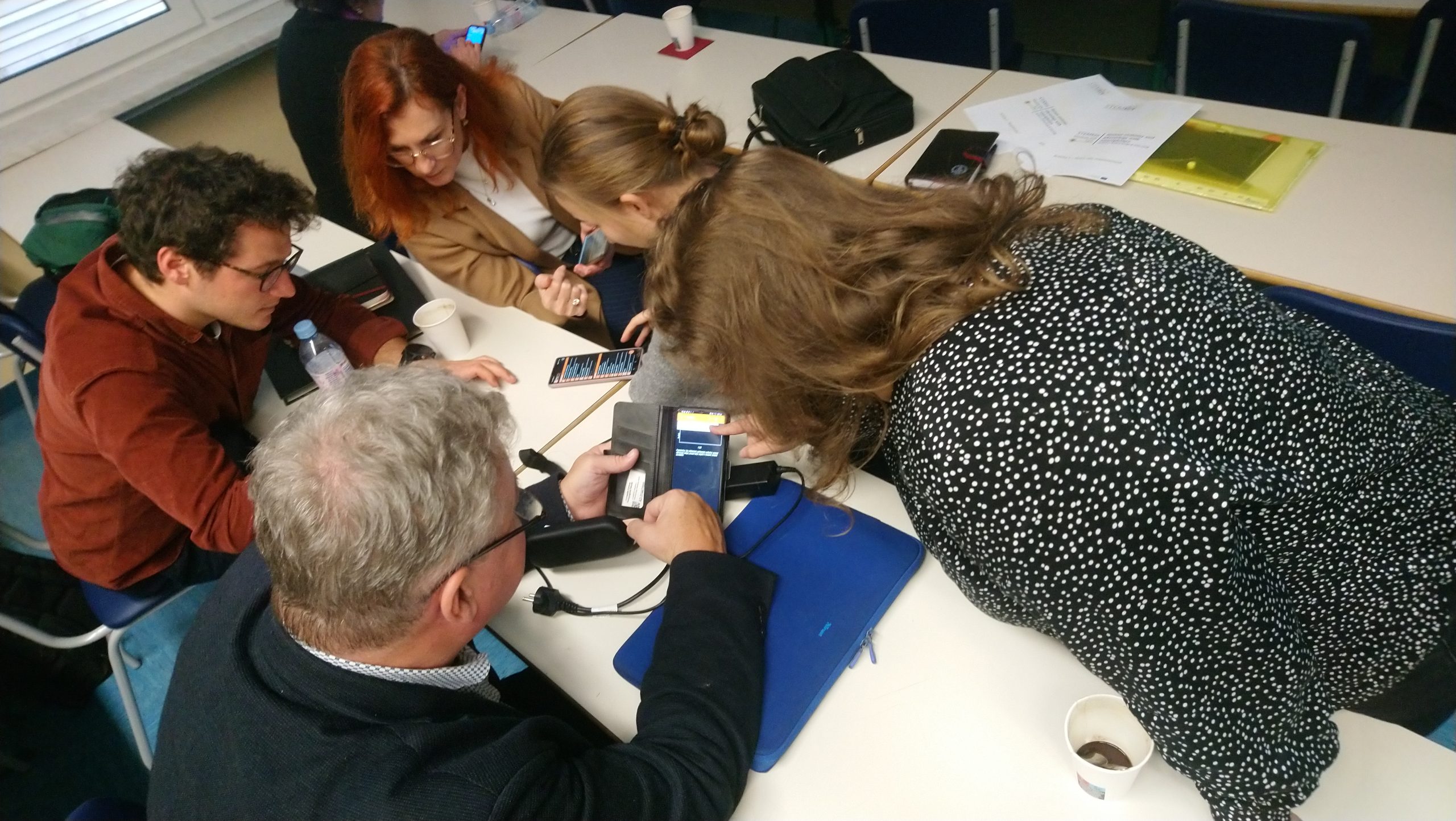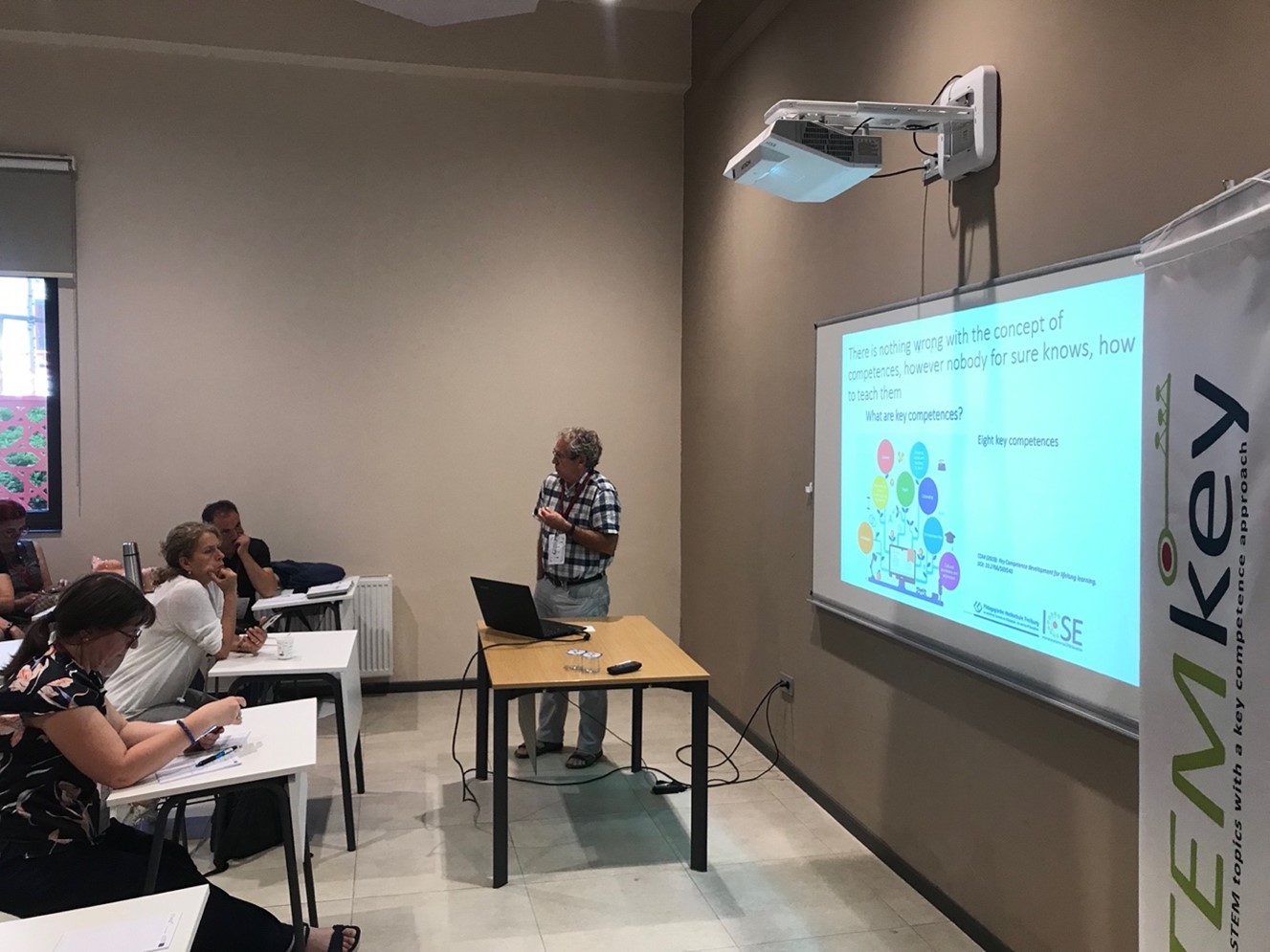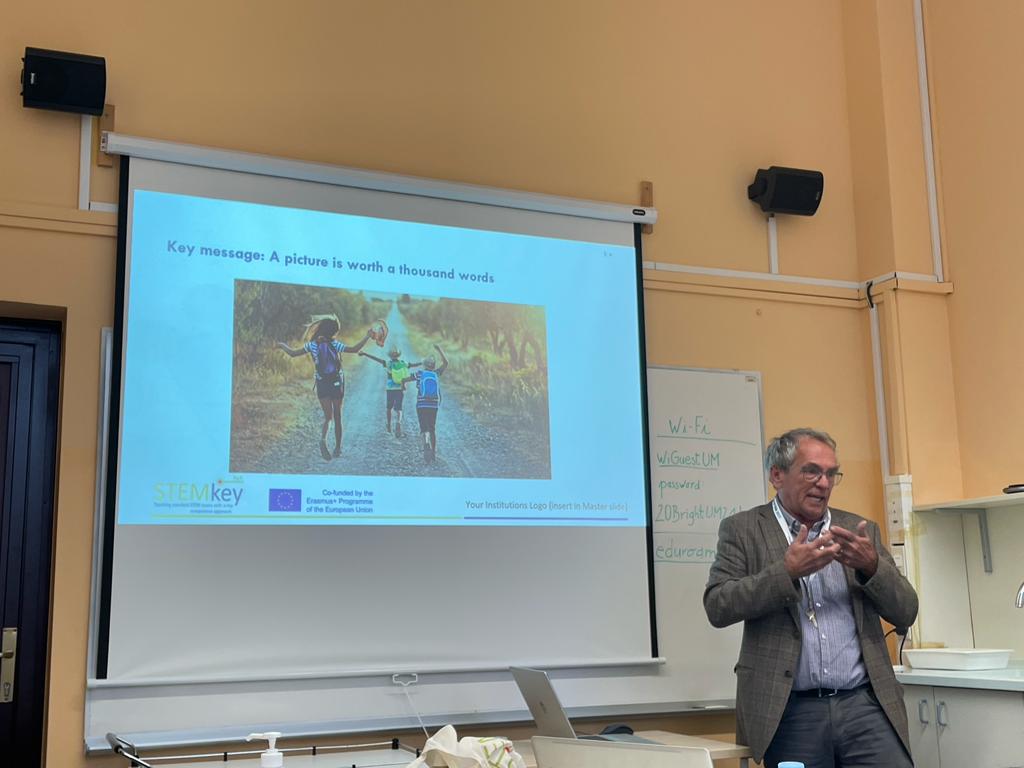OUR PARTNERS FROM SLOVENIA
Introduction of the university
The Faculty of Natural Sciences and Mathematics of the University of Maribor (FNM) was founded in 2006. It was created by the transformation of the former large Faculty of Education of the University of Maribor. The Faculty is composed of the following departments: Department of Biology with Chair of Chemistry education, Department of Physics, Department of Mathematics and Computer Science, and Department of Engineering.
The Faculty carries out numerous study programs, the quality of which is provided by excellent academic staff. The faculty members are world-renowned scientists and researchers and through their work rank the faculty at the very top of research excellence at the University of Maribor. Successful research activity is reflected in current and applied study programs.
The vision of the Faculty: to be the leading educational, research and applied development centre in the region in the field of biology, ecology, physics and mathematics and the leading centre in Slovenia for the education of teachers in all fields of science, mathematics and technical professions at all levels of education. Creating new knowledge in the basic sciences (e.g. mathematics, physics, biology, ecology and educational sciences) to improve the quality of life of people and establishing sustainable development.
Every year we host a number of ERASMUS students, and a number of our students goes abroad. The same is true for hosting international teaching and research staff. The practice is that before promotion in the associate professorship each candidate must be for at least three months at stay in an organization outside the country.
Faculty of Natural Sciences and Mathematics offer programmes in the field of Teacher Education
The Faculty of Natural Sciences and Mathematics offer Bachelor, Master and Doctoral programmes in the field of Teacher Education, as both one stream, and two stream options allowing different combinations to preservice teachers. University teachers and teaching assistants are organized as a Pedagogical Centre. Teaching and research staff is participating as a partner or a leader in numerous international and national educational projects. Beside regular study programmes for pre-service teachers they offered also short-term courses for in-service teachers.
The education of the prospective teachers benefits from the knowledge that FNM offers a number of Bachelor, Master. And Doctoral non-educational programmes in Biology, Ecology, Physics, and Mathematics. Because this programmes are research oriented prospective teachers become a part of a research culture, therefore for example, their Master theses are mainly research oriented.
Preparation of prospective teachers is student centered and involve not only reproduction but production of own innovative teaching solutions and materials. Because we work with smaller groups of students it is possible to individualize their learning trajectories.
Our personnel has rich experiences in the conduction of research in the field of education and production of teaching materials as textbooks for elementary and secondary school levels.


Introduction of the key persons
Prof. dr. Andrej Šorgo is a full professor of biology didactics and former chair of Department of Biology at the Faculty of Natural Sciences and Mathematics, University of Maribor. He got his PhD degree in Biology from the University of Ljubljana. He has over 20 years of experience as a secondary school teacher and lecturer at higher vocational school. Recently is a university teacher of Biology didactics and several related subjects in the field of Biology and Environmental education. As a part-time researcher, he is an employee of the Faculty of Computer sciences and Electrical Engineering of UM and visiting professor at the Charles University in Prague. He has published a series of research and professional articles and has reported findings at a number of conferences. He was Slovenian representative in the executive board of International Alpen Adria College and leader of one of its international summer schools, with no tolerance to any kind of discrimination. Additionally, he was one of the co-authors for the Slovenian curriculum for Environmental education. As a university professor, he was the leader of the Biological track of the EU project “Development of Science competences”. At the moment he is a leader of the project “Development, testing and validation of an autonomous intelligent and adaptive e-learning system for the improvement of information literacy of adolescents”, grant no. J5-8230. He was a research partner in a project “Development of information literacy of university students as a support for solving authentical science problems”. Currently, he is a member of the” Information systems” research group.
Vida Lang is a Master Professor in Biology and Chemistry, and a PhD student at the position of a young research. After her graduation she was employed for a year at the 9-year compulsory basic school as a teacher of Biology and Chemistry. Momentally, she is employed as a junior researcher in the field of Biology Didactics at the FNM. Her research is oriented to the field of ICT in education.

Prof. dr. Andrej Šorgo at STEMkey Workshop
Importance of the organisation for the project
FNM UM brings added value to the project due to (1) more than 50 years of continuous Science Teacher education, (2) its longstanding experience in coordination of national and international projects, (3) its experience in developing new educational approaches in computer supported STEM education. (4) exchange of experiences between different STEM disciplines.
FNM was in a forefront of introduction of ICT in Biology education what is reflected in finished and running doctorates and master theses. Ecently we are leading a project on application of Artifficial Intelligence in Education of Science Literacy. We had authored a number of manuals, textbooks, peer reviewed articles in journals and monographs about application of ICT in Biology (Science) education.
